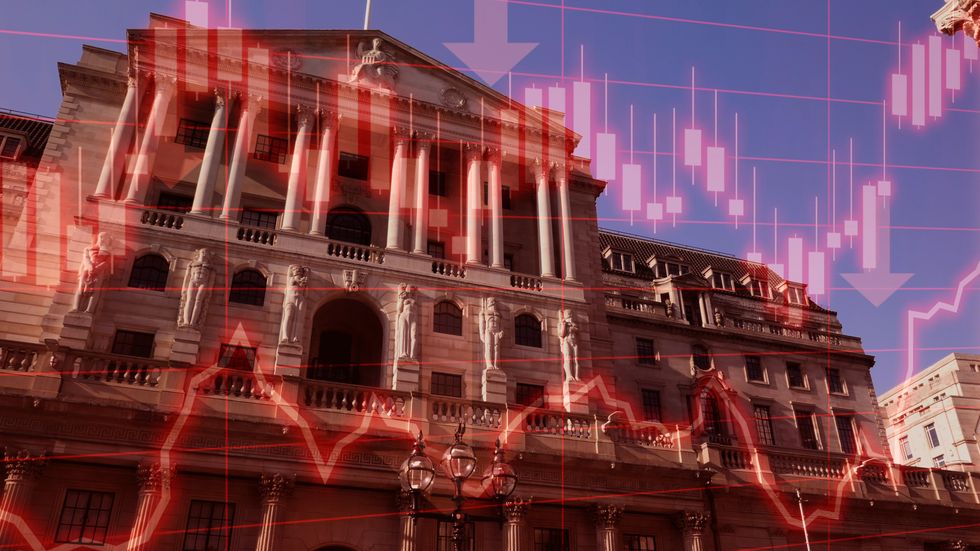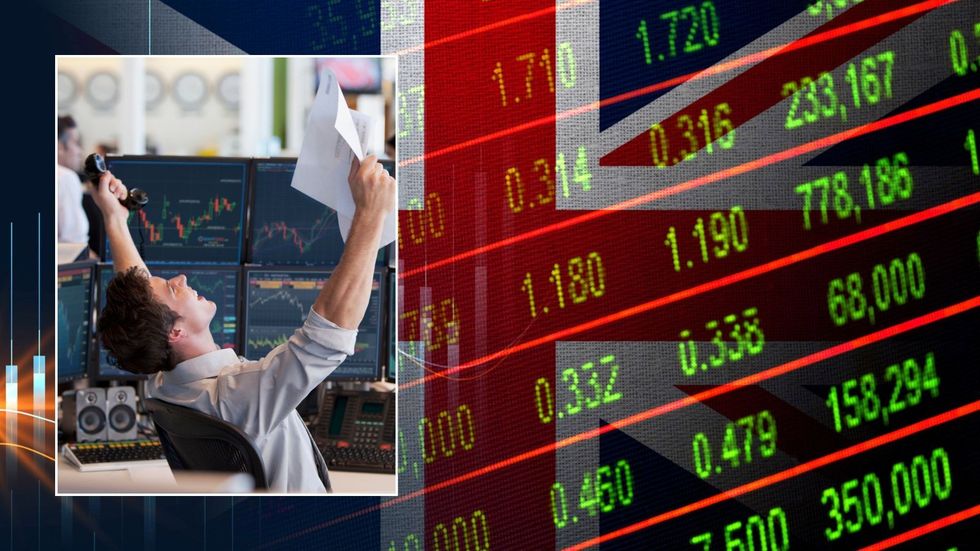The UK economy is growing stronger than expected
GETTY
The UK economy grew by 0.7 per cent between January and March
Don't Miss
Most Read
Trending on GB News
The UK economy has rebounded from recession as GDP growth was stronger than previously thought, according to new data.
The Office for National Statistics (ONS) revealed in revised figures on Friday morning that UK gross domestic product (GDP) grew by 0.7 per cent between January and March.
The UK fell into recession at the end of last year after shrinking for two three-month periods in a row.
Prime Minister Rishi Sunak said the economy had "turned a corner", but Labour said this was no time for a "victory lap".
The figures come just a week before the General Election. Opinion polls have suggested this could see Keir Starmer, the Labour Party leader, replace Conservative Prime Minister Sunak.
In May, the statistics body estimated that the economy had grown by 0.6 per cent over the quarter.

High interest rates and inflation have impacted the UK economy
GETTYBut overall, experts explain the growth picture is weak and the UK economy will see no immediate effect.
Lindsay James, investment strategist at Quilter Investors said: "With UK GDP growth having shown no growth in the latest data covering the month of April, news that the better growth rate of 0.6 per cent in the first quarter has been upgraded marginally compared with earlier readings will do little to enthuse investors.
"The Bank of England expects a more modest growth rate of 0.2 per cent in the second quarter, which although forecast before the announcement of the election and indeed the publication of the better than expected Q1 figures, may end up being close to the truth as recent surveys have indicated a pause in spending decisions within the crucial services sector during the election period.
"The second half of 2024 seems likely to be slow to change gear, despite the energy of a probable new Government, with any noticeable changes not likely to be felt until 2025.
"With the wet spring that has firmly held back the retail sector finally giving way to warmer weather and interest rates likely to be heading down by year-end, it could well be that better growth lies ahead.
"However until the next Budget makes both taxation and spending plans clear, businesses are unlikely to invest at scale, delaying any meaningful acceleration in GDP growth yet further."
The improvement in growth was driven by the services sector, with slightly stronger activity in the professional services, transport and storage sectors.
This growth saw the UK economy rebound from a recession in the latter half of 2023, after the ONS previously confirmed two consecutive quarters of decline.
The economy shrank by 0.1 per cent in the third quarter and 0.3 per cent in the fourth quarter.
The data for Britons' personal finances show the household saving ratio edged up compared with Q4 of 2023.
This was driven by an increase in income from wages and salaries of £3billion an increase in the adjustment for pension entitlements of £3.7billion, and a decrease in households’ actual social contributions paid by employees of £3.4billion, which was driven by the reduction of the employees’ National Insurance contribution rate.
The ONS also said that real households’ disposable income (RHDI) is estimated to have grown by 0.7 per cent in the first quarter of 2024, maintaining the same growth as the previous quarter.
LATEST DEVELOPMENTS:
 The UK economy grew last quarter GETTY
The UK economy grew last quarter GETTY On Thursday, Andrew Bailey, the governor of the Bank of England said that the UK was seeing a recovery, although it was not a strong one.
Interest rates are currently at their highest for 16 years, meaning people are paying more to borrow money for things such as mortgages and loans, but savers have also received better returns.
Falling inflation had boosted expectations of a rate cut in June. However, the stronger-than-expected growth figures have dampened those expectations.
Ruth Gregory, deputy chief UK economist at Capital Economics, said it showed "the Bank of England doesn't need to rush to cut interest rates".
She said the first rate cut would ultimately be determined by upcoming employment and inflation figures.







